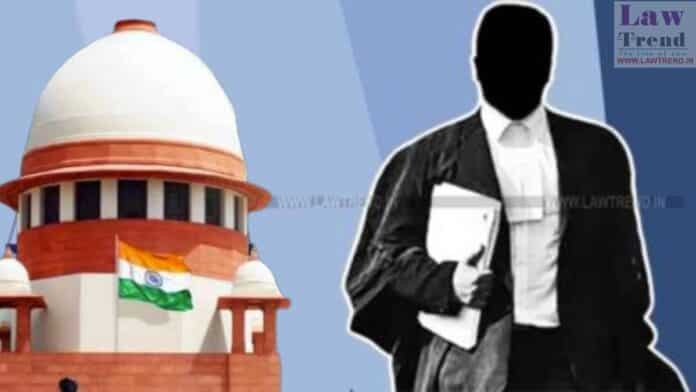On Friday, the Supreme Court passed directions in pleas seeking modifications in the guidelines regulating the conferment of designation of Senior Advocates as laid down in its 2017 judgment (Indira Jaising v. Supreme Court of India).
The bench comprised Justice Sanjay Kishan Kaul, Justice Ahsanuddhin Amanullah, and Justice Aravind Kumar.
The method of “secret voting” by the full court should be the exception and not the rule, the bench directed.
The bench said that it is difficult to prescribe cut-off marks in advance. The permanent committee can analyze the quality of the journal in which the article is published.
The bench also upheld the criteria of ‘personal interview’ and kept 25 marks for it. It also underscored the importance of ensuring diversity in senior designations and in giving representation to women and first-generation lawyers.
The 2017 judgement was passed in a petition challenging the constitutional validity of Section 16 of the Advocate Act, 1961, which empowers the Supreme Court or a High Court to designate Senior Advocates.
The petitioners had argued that the provision conferred unguided discretion upon Full Court to make determinations regarding the designation of Senior Advocates.
The Apex Court had upheld the validity of Section 16 but noted that certain parameters are required to be considered in the process of designating Senior Advocates.
Exercising the liberty granted under a clause in the 2017 judgment, which permitted revisiting the guideline for modification, petitions were filed seeking the court’s indulgence in tweaking the extant guidelines.
Senior Advocate Indira Jaising, petitioner-in-person, addressed several issues, including the practice of the Full Court to take decisions based on voting by secret ballot and by the rule of the majority.
According to her, a system of marking and a system of secret ballot are antithetical to each other. The bench stated that maybe a secret ballot can be called for only as a last resort.
The Additional Solicitor General, KM Nataraj, appearing for the Union Government made submissions in support of Full Court voting by secret ballot.
Justice Kaul suggested that the Full Court could have discretion, but only to reject recommendations of the Permanent Committee; or select someone from those who had been called for an interview but did not make the cut.
Jaising proposed that there can be two cut-off points—one for qualifying for an interview and the other for designation.
Justice Kaul expressed that he personally believes in the process of interviewing a candidate, especially on some topics, including sensitive legal issues, but in reality, given the number of applicants, it might not be feasible.
He suggested that a cut-off point can be created for the purpose of the interview. SCBA President, Vikas Singh submitted that the interview can be conducted but only for the purpose of identification.
Jaising submitted that at present, the highest point that can be assigned for experience, in terms of years of practice, is 20 even when the candidate has experience over 20 years. She apprised the bench that there is a suggestion from the Bar that the points be increased to 30.
The bench was not inclined to accept it as the same would result in giving ‘overweightage to the number of years.’
Also Read
As such the Supreme Court passed several directions in modifying the guidelines for the conferment of designation of Senior Advocates.
The bench upheld the criteria of the personal interview and kept 25 marks for it. It also underscored the importance of ensuring diversity in senior designations and in giving representation to women and first-generation lawyers.
The bench directed that a method of “secret voting” by the full court should be the exception and not the rule and that the process of senior designation should be carried out at least once a year.
The power of suo motu designation for exceptional candidates by full court will remain.
Overall, the judgment seeks to promote transparency and fair assessment in the process of conferment of senior advocate designation.
Case Detail: [Case Title: Amar Vivek Aggarwal And Ors. v. HC of P&H And Ors. WP(C) No. 687/2021]




